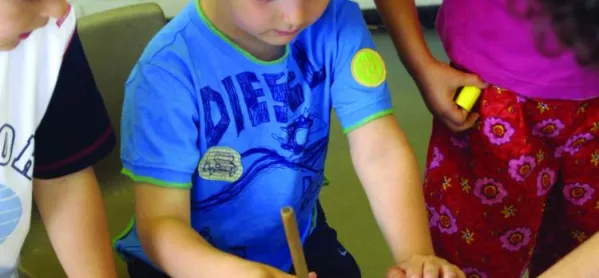It was with much relief that I heard of the government’s decision to abandon formal baseline assessment. The introduction of formal testing, however carefully administered, during the first few weeks of each child’s schooling was always going to present more difficulties than it could hope to solve.
Many colleagues may be aware that I have spoken out publicly against baseline testing and that in my own school, we did not participate in the optional baseline assessments in September 2015. Neither did we have any intention of using the baseline materials proposed by the DfE in the future. This is not because I disagree with assessment - far from it. I believe that assessment is an essential part of pedagogy as a means of enabling excellent, expert teaching. My argument with the baseline tests as a measure of school performance was that there were risks of too many unintended consequences. In common with every other headteacher I know, I try to put the needs of the child first. The problem with the proposed baseline measure was that, all too easily, the assessment of the cohort could have turned into the starting point for wildly inaccurate individual tracking of attainment.
Within our Foundation Stage at The Wroxham School, we tailor our curriculum and teaching to the needs and interests of our nursery and reception children. We visit every child at home before they begin nursery and ensure that we build a trusting relationship with the child andher parents. This provides us with essential information and shared experience that we can build on when the child begins to play independently in our setting. If new children join us at the beginning of the reception year we visit them at home too.
Assessment is a fundamental part of every early years teacher’s practice. The expert teacher knows the importance of careful listening. She knows that listening takes many forms and is not simply about what is said,but entails closely observing children at play. Understanding children’s thinking and their developing ideas through building and sustaining dialogue is an expert form of teaching that enables high challenge within a richly supportive environment. This is the beauty and the art of early years teaching that cannot be reduced to scores on a page, or to boxes on a tracking screen.
I believe there is much to do in enabling colleagues throughout the teaching profession to build expertise and confidence in all aspects of assessment. The forthcoming #LearningFirst conference in Sheffield on 21 May is the beginning of a school-led initiative to address this lack of agency. Colleagues will gather together to debate how schools can learn more from each other about how to engage in meaningful assessment that informs teaching.
Helping schools to evidence the wonderful achievements and stories of progress experienced by our youngest children is important for many reasons. I hope that removal of the baseline testing requirement will inspire school leaders to build further expertise and confidence in assessment throughout school. For all our sakes, we need to put assessment back in its box; thereby refusing temptation to place labels on children or their teachers.
There is much within early years assessment practice that the rest of us can learn from. I am beyond delighted that the very real risk to early years pedagogy that could have resulted from a limited reductive view of early learning has been avoided at the last minute.




